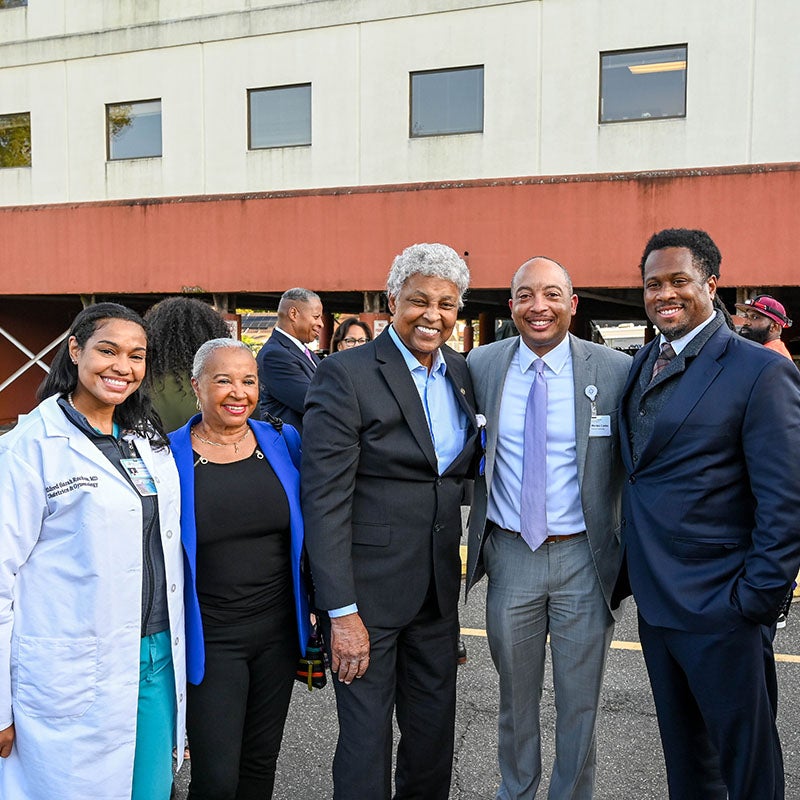Community Health and Well-Being Celebrates New Location in Hartford
October 2, 2023Categories: Events

In a sign unveiling and open house event, Community Health and Well-Being (CHWB) leaders and colleagues in Hartford welcomed elected officials, residents, and community partners to tour the new space set to serve as a refuge and resource for the community. Housed within the new space, now located at 659 Tower Avenue in Hartford on the Mount Sinai campus, is the Curtis D. Robinson Center for Health Equity. Previously located on Woodland Street, the Center for Health Equity is now in closer proximity to many of the other CHWB services, including the Joan C. Dauber Food Pantry, the Greater Hartford Family Advocacy Center, and the Hospital Violence Intervention Program.
The co-founder of the Center for Health Equity, Curtis Robinson, attended the open house event alongside his loved ones to celebrate the Center’s legacy. Curtis co-founded the Center for Health Equity, formerly known as the Curtis D. Robinson Men’s Health Institute, in partnership with Saint Francis with the vision of improving community health and creating equitable opportunities.
A long-time entrepreneur, Robinson, and his wife Sheila Durant Robinson established the Curtis and Sheila Robinson Foundation in 2015 and have dedicated their lives to philanthropy for many decades. Curtis was named a Health Care Hero by the Hartford Business Journal in 2010 after establishing the Center for Health Equity and has been named one of the most influential Black men in Connecticut by the NAACP.
“Curtis is a champion of doing right for the people of this community,” said Carolyn Alessi, Regional Director of Community Health and Well Being and Curtis D. Robinson Center for Health Equity. “He has made a profound difference in the lives of so many in our community and will continue to do so well into the future. We are honored to be part of his incredible legacy and to carry out his vision, which is directly aligned with the Trinity Health Of New England Mission, and our passion and compassion in caring for our patients well beyond their medical needs."
Alessi went on to say that while much has been accomplished to address the disparities in health care, there is still work to be done.
“The wraparound social and clinical care model, which integrates Community Health Workers (CHW) as part of the clinical care team, has become a new standard of care within our institution and a priority for the Center for Health Equity,” Carolyn adds. “The role of the CHW is to bridge the gap in care by addressing the racial and health disparities of our patients which emulates the vision of the Center and further builds capacity within our community.”
